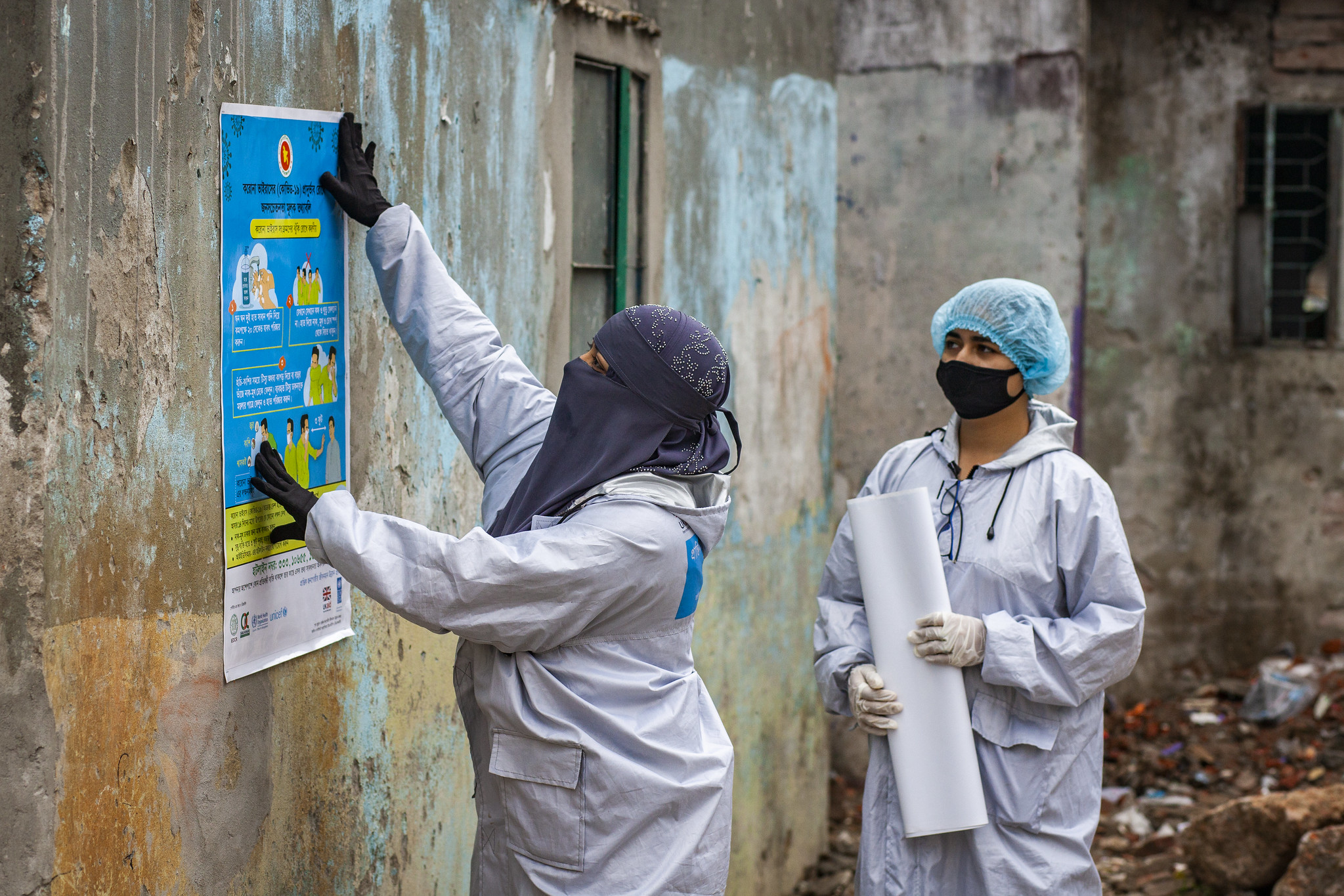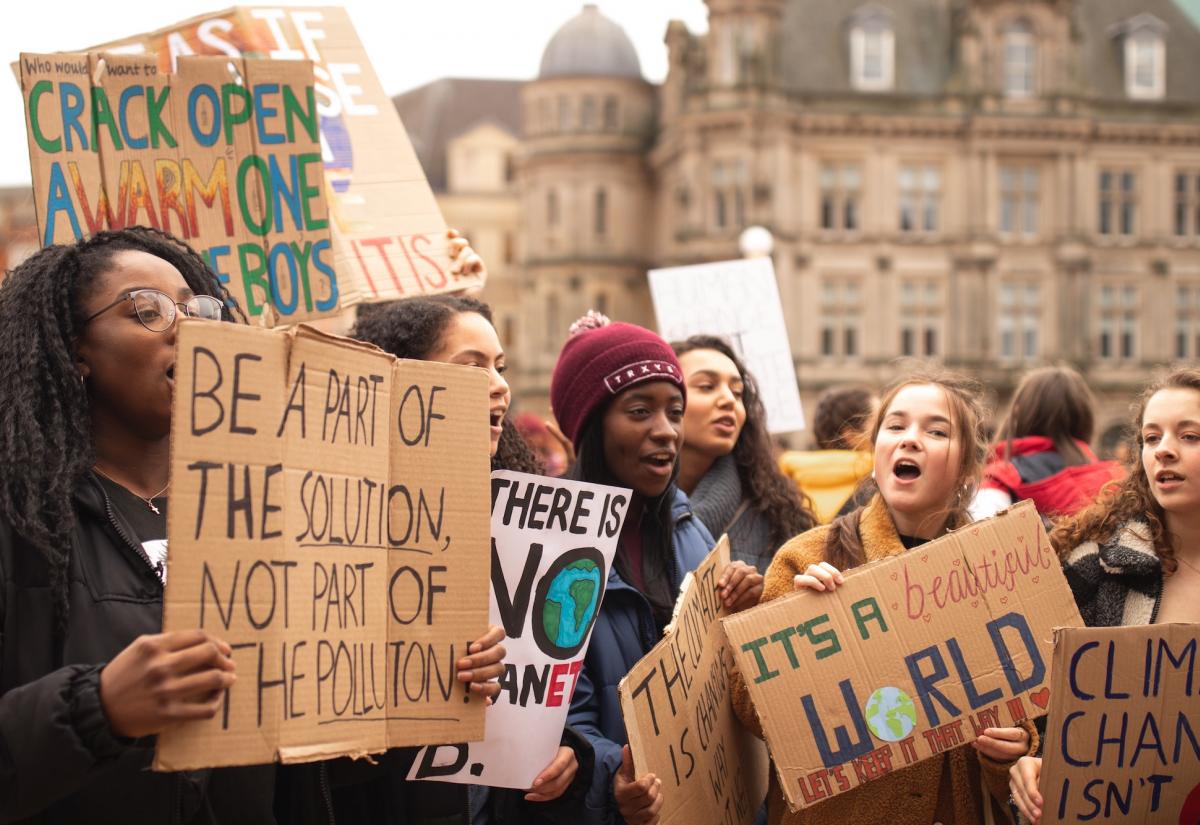The global political response to COVID-19 was not effective, but we can learn from it
A memo on the political barriers to COVID-19 response informed the 2021 Global Preparedness Monitoring Board annual report. The Oxford COVID-19 Government Response Tracker team share some insights into their analysis.

What did not work in the political response to COVID-19? And how can we learn from the present to be better prepared in the future? These questions guided us while drafting our memorandum "Moving from words to action: identifying political barriers to pandemic preparedness", published this week alongside the 2021 annual report of the Global Preparedness Monitoring Board (GPMB), an independent group of global leaders who work to ensure preparedness for global health crises.
The COVID-19 pandemic is proving to be longer and more complicated than people had anticipated. To this day, there have been more than 244 million cases, and more than 4.95 million deaths (according to data from Our World in Data). As the pandemic goes on, it has become clear that the global political response to the crisis has been chaotic, fragmented, and unequal.
In preparation for GPMB’s 2021 annual report, we looked at the political barriers that have hindered COVID-19 response and will potentially prove to be an obstacle in preparing for the next pandemic. We also provide suggestions on how to overcome such barriers. Our work is based on a brief review of ten priority recommendations as identified by GPMB. These included advance agreements for vaccine distribution, contingency fund for public health emergency, UN high-level council on public health crises amongst others.
Our findings have focused on the following barriers:
- Domestic dominance: the pre-eminence of domestic interests, which has greatly impacted the global capacity to respond effectively and in a timely fashion to the pandemic. In other words, states were more preoccupied with national policy and interests, such as the vaccine procurement processes and the COVAX programme.
- Multilateral gridlock: the increasing difficulty in reaching common agreements due to long-term structural trends, namely: multipolarity, institutional inertia, and fragmentation.
- Short-termism: governments’ lack of ability to look beyond immediate consensus and plan for the medium- and long-term, which is driven by both human psychology and political institutions and structures.
- Donor-recipient dynamics: the inequality in funding capabilities, public health priorities, and preferred programming/funding models between donor and recipient countries; this results in misalignments of prioritisation and inefficient distribution of resources.
- Building resilient health systems: the difficulty in building strong healthcare systems globally, suffering from issues such as: funding sustainability, funding pathways, grass-root level capacity building.
Of course, all these issues are complex, and require complex solutions. International cooperation and solidarity will be essential, as outlined in the UN Secretary General’s report "Our Common Agenda". For this reason, we outline some suggestions that take into account the current barriers and look at what is possible on both the medium- and the long-term.
Some of our proposals include:
- Introducing effective national review processes, ie, a commission that reports jointly to domestic political leaders and to an international body.
- Establishing an independent system of information sharing and monitoring, similar to the International Atomic Energy Agency.
- Creating a standing Emergency Committee that would not require WHO’s Director General to initiate deliberations around a potential Public Health Emergency of International Concern (PHEIC).
- Abolishing IP and patent restrictions for vaccines.
- Creating a global health or health resilience fund that uses mandatory contributions and a flexible mandate to break existing vertical funding dynamics.
- Engaging a broader suite of non-state actors in health resilience funding.
GPMB’s 2021 annual report, titled "From worlds apart to a world prepared" and published this week, takes into account our suggestions and advocates for stronger global governance, aided by a more independent WHO, an agile health emergency system, a collective financing mechanism, engagement of civil society and the private sector, and an independent monitoring and accountability system. The analysis in the report is a stark reminder of how inequalities during COVID-19 have been exacerbated, and what we can do to "build back better" and be more prepared for what lies ahead.
We hope that the upcoming G20 summit in Rome will consider these suggestions, starting from the waiver of IP on COVID-19 vaccines – for a more equal, better prepared world.
Martina Di Folco, Thomas Hale, Anna Petherick, Toby Phillips are part of the Oxford COVID-19 Government Response Tracker. Yuxi Zhang and Laura Hallas are former OxCGRT researchers.



